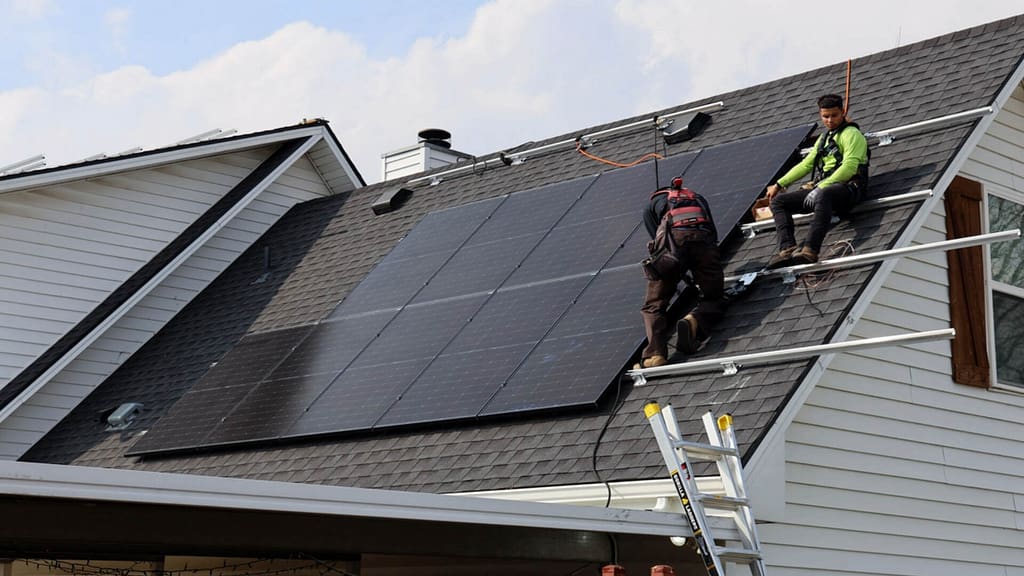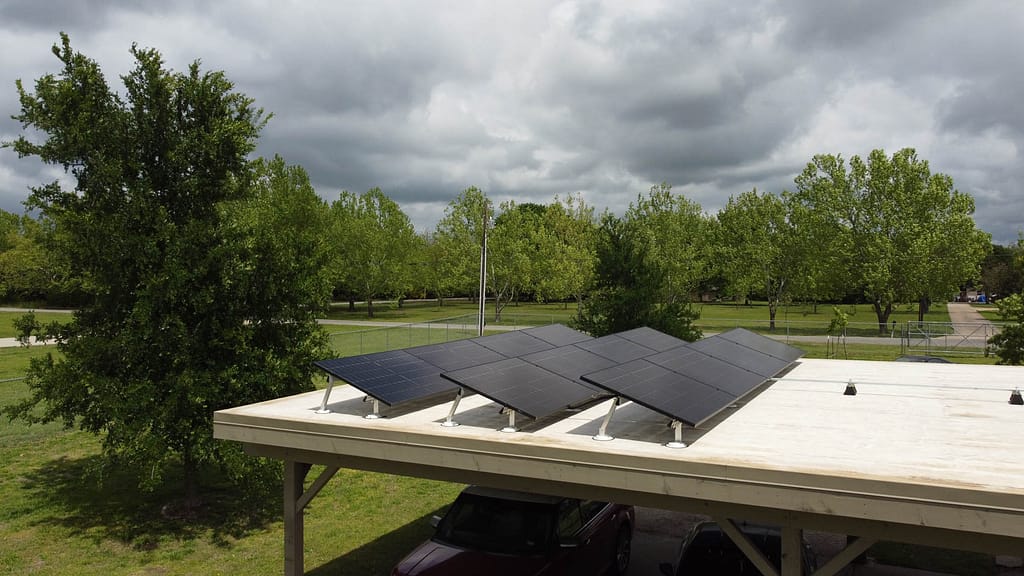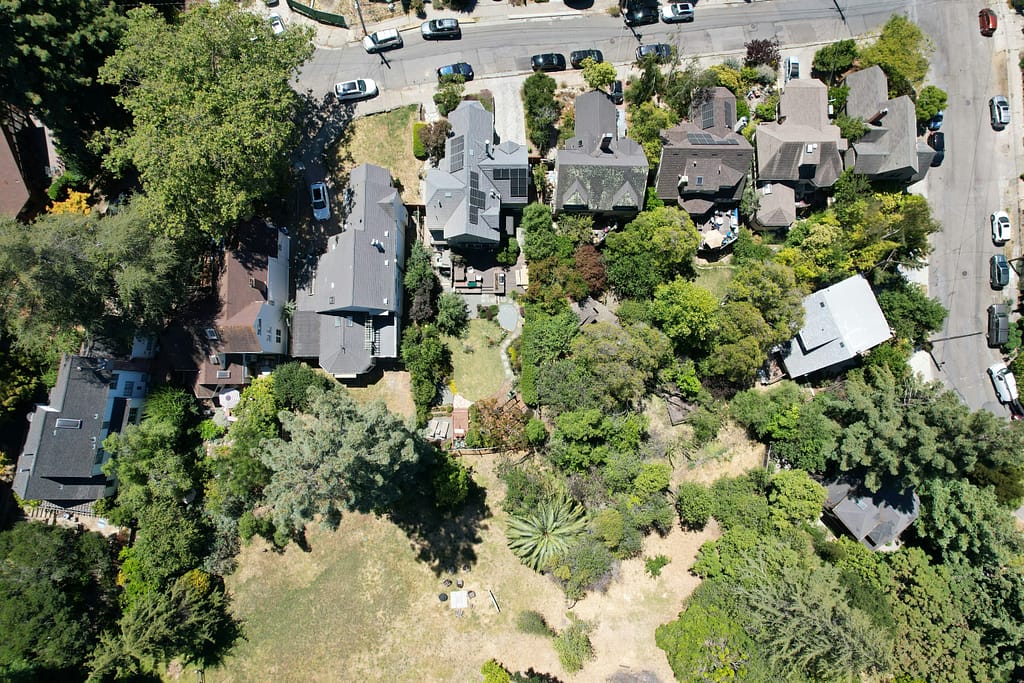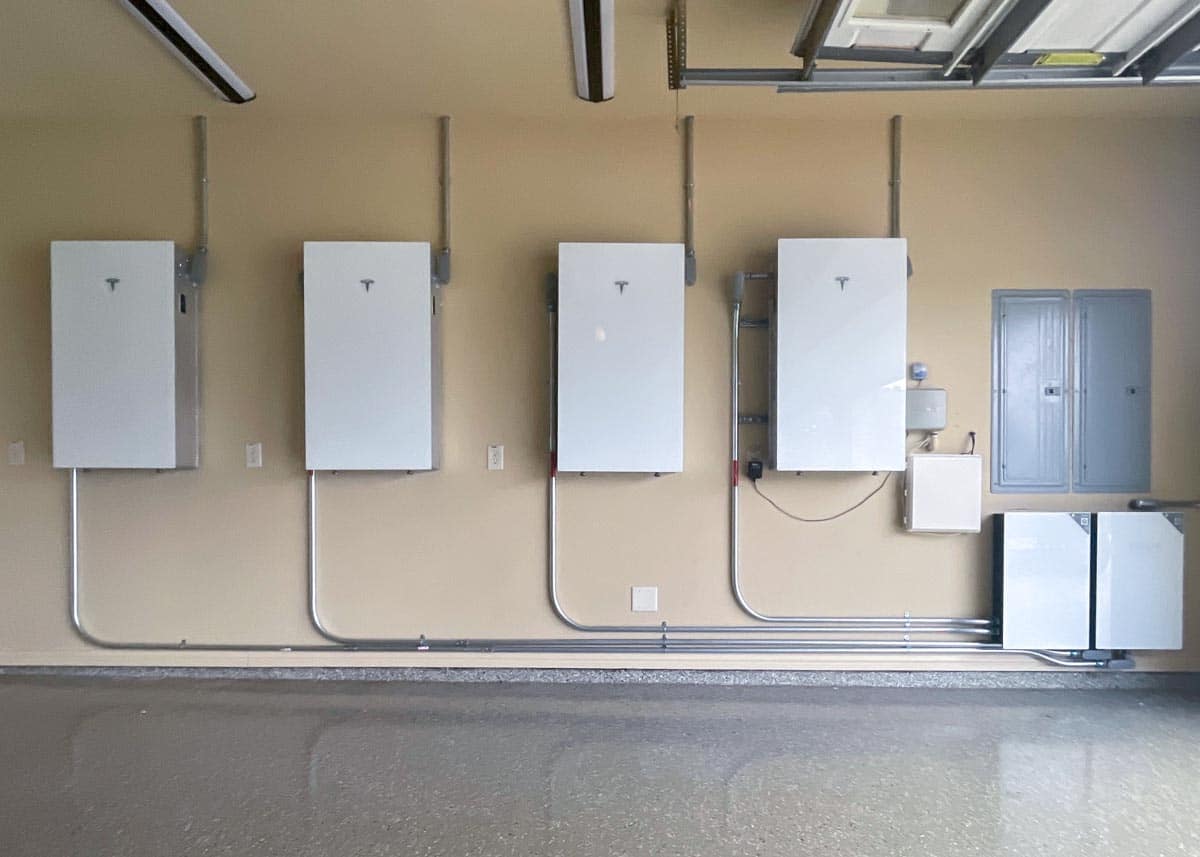Check if your roof is suitable for solar by evaluating its angle between 30 and 45 degrees, direction ideally south-facing, minimal shading, appropriate materials like asphalt shingles or metal, and ensuring it’s in solid condition.

Table of contents
Is Your Roof Ready for Solar?
Switching to solar energy is a fantastic way to reduce your energy bills, enhance your home’s value, and contribute to a greener planet. However, not every roof is created equal when it comes to supporting solar panels. At Good Faith Energy, we understand the importance of making informed decisions about solar energy. We’re here to guide you through the factors that determine whether your roof is ideal for solar installation.
Ideal Roof Angle for Solar Panels
The angle of your roof is one of the most crucial elements in determining the efficiency of your solar panels. Generally, a roof angle between 30 and 45 degrees is considered optimal for capturing sunlight throughout the year. This allows your panels to absorb the maximum amount of sunlight, leading to higher energy production and better savings on your electricity bill.
If your roof is too flat or too steep, don’t worry. We can make adjustments during installation to ensure your panels are positioned to capture as much sunlight as possible. Whether you have a flat roof that needs angled mounts or a steep roof that requires special consideration, we have the expertise to optimize your solar setup.

Which Direction Should My Roof Face for Solar?
In the Northern Hemisphere, south-facing roofs are ideal for solar panels because they receive the most sunlight throughout the day. This orientation maximizes the efficiency of your solar energy system, ensuring you get the most bang for your buck.
However, if your roof faces east or west, you can still benefit from solar energy. While these orientations may produce slightly less energy than a south-facing setup, they can still offer significant savings. We assess your roof’s direction and help you determine the best configuration for your solar panels ensuring you get the most out of your investment.
Roof Shading & Solar Production
Shading is another critical factor to consider when evaluating your roof for solar potential. Trees and other structures that cast shadows on your roof reduce the amount of sunlight your panels receive. Ideally, less than 10% of your roof should be shaded during peak sunlight hours, typically between 10 a.m. and 3 p.m.
At Good Faith Energy, we use advanced solar design tools to assess shading and its impact on your solar production. If shading is a concern, we can recommend solutions. Usually this includes trimming trees or using microinverters that help minimize the effects of shading on your solar system.

Best Roof Material For Solar
The type of roofing material you have can also impact the ease and cost of solar installation. Solar panels can be installed on various roof materials, but some are more suitable than others. Asphalt shingles, metal roofs, and tiles are ideal for solar installation because they’re a sturdy foundation that’s easy to work with.
If your roof is made of slate or wood, it might require additional considerations, such as specialized mounting equipment or extra labor. Factors like these can add to the cost of installation. We’re experienced with all roof types and provide a comprehensive assessment to ensure your roof is ready for solar.
How Does Roof Condition Impact Solar Installation?
Before installing solar panels, it’s important to consider the condition of your roof. Solar panels have a lifespan of 25-30 years, so it’s crucial that your roof is in good shape to avoid any complications down the line. If your roof is old or damaged, we recommend repairing or replacing it before installing solar panels.
Good Faith Energy offers in-house energy services, making it easy to address any roof repairs or replacements. Our team will work closely with you to ensure your roof is in the best possible condition before your solar panels are installed. When going solar, we give you peace of mind and protecting your investment for years to come.

What Is the Lifespan of a Roof with Solar Panels?
One of the lesser-known benefits of solar panels is that they can extend the life of your roof by protecting it from the elements. By shielding your roof from direct sunlight, rain, and debris, solar panels can help reduce wear and tear overall.
A well-maintained roof can last anywhere from 25 to 50 years, depending on the materials used and the environmental conditions. Our team makes sure your roof is durable enough to support solar panels, and we’re here to help you maintain your system for the long haul.
Maximizing Solar Panel Efficiency
To get the most out of your solar panels, we install your system at the correct angle, facing the right direction, and in an area with minimal shading. Additionally, regular maintenance, such as cleaning the panels and trimming nearby trees, can help maintain their efficiency over time. We recommend in Texas, cleaning your panels once every other year, but it all depends on the climate. If you experience high dust levels in your area you may need to clean them more often.

The Role of Backup Batteries in Solar Systems
Adding a backup battery to your solar system is a smart move for homeowners who want to ensure energy reliability and independence. Backup batteries, like the Tesla Powerwall 3, store excess energy for use during power outages or times of low solar production, like during cloudy days or at night.
With a backup battery, you can have peace of mind knowing that your home will have power even when the grid goes down. This is especially beneficial for homes in areas prone to storms or grid instability. Our team at Good Faith is certified in designing and installing solar systems with integrated batteries, ensuring you have a reliable source of energy when needed.
Benefits of Solar Panels
Installing solar panels on your home is a smart investment, especially if you’re considering a new or recently replaced roof. With a 30% federal tax credit available for solar installations, the financial benefits are significant. Additionally, many utility co-ops, such as Oncor, offer yearly incentives of up to $8,000. We work with third parties to help you with financing the way you need.
Beyond the financial incentives, solar panels can increase your home’s value and energy efficiency. This makes your home an attractive feature for potential buyers if you ever decide to sell your home. The most known benefit, however, is the reduction or elimination of your electric bill, which can save homeowners upwards of a thousand dollars or more per year.
At Good Faith Energy, we’re committed to helping you realize these benefits of solar. That’s why we offer top-quality solar installations, competitive pricing, and exceptional customer service. Our team is here to guide you every step of the way, from your initial consultation to the final installation and beyond.
Why Choose Good Faith Energy?
At Good Faith Energy, we pride ourselves on being a reliable and trustworthy team for all of your energy needs. With over 10 years of experience in the solar and battery industry, we are dedicated to helping you maximize your home’s investment. We offer a range of services, including solar panel installations, backup battery systems, and ongoing maintenance to ensure your solar system performs at its best for years to come.
Whether you’re just starting to explore solar energy or you’re ready to install, Good Faith Energy is here to provide you with the support you need. Contact us today to schedule a consultation and take the first step towards a more sustainable and cost-effective energy solution for your home.